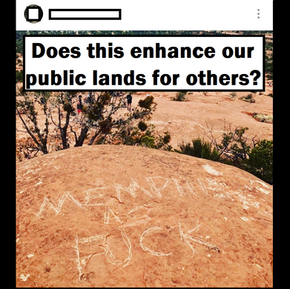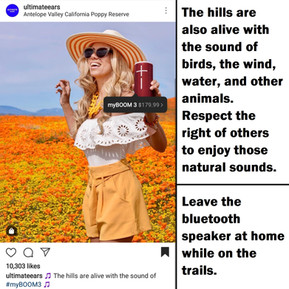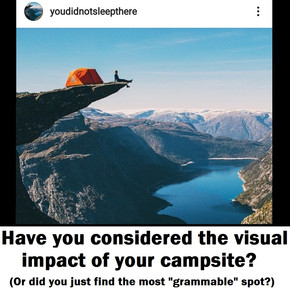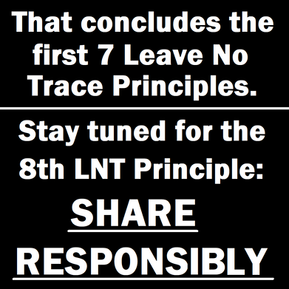Leave No Trace Principle #7 – Be Considerate of Other Visitors
- Public Lands Hate You
- Sep 17, 2019
- 2 min read
***Posted to the @PublicLandsHateYou Instagram account on 9/17/2019***
Leave No Trace Principle #7 – Be Considerate of Other Visitors
Part of leaving no trace is examining how our actions might impact others and minimizing those impacts. Does the music from your Bluetooth speaker enhance the experience for others on the trail? How about your frolicking pet running up to others? What about writing your initials on a rock or tree? We should all strive to minimize our impact and be respectful of the rights of others to peacefully enjoy our public lands.
Understanding trail etiquette is a great way to show respect. On trails, uphill hikers generally have the right of way. If there is not room to comfortably pass, downhill hikers should allow uphill traffic to pass by moving off the trail onto a durable surface. On multipurpose trails, both hikers and bicyclists should yield to equestrians and pack animals, and bicyclists should yield to hikers. All users should be aware of their surroundings in all directions, including to the rear. When a user has the desire to pass, they should politely announce their presence and proceed carefully.
If camping in the backcountry, choose locations that are well screened. Ideally other users should be able to pass by a campsite without knowing it is there. There will generally be a tradeoff between camp visibility and site durability. Weigh the options and choose what you think will have the least impact.
Being considerate also means knowing and abiding by the rules for an area. Read signs at the trailhead or check in with the local land management agency to be sure you understand local requirements. Being considerate also means knowing the other LNT principles and following them to the best of your ability.
In summary, don’t be THAT person or group. Interactions with others should be courteous but generally non-memorable. At the end of a visit to our public lands, people should be talking about how much they enjoyed spending time in nature, not about the disrespectful folks they ran into on the trail or at the campground. As the world’s population continues to grow and more people use our public lands, considering the collective impacts of our actions on others becomes imperative.




















Comments